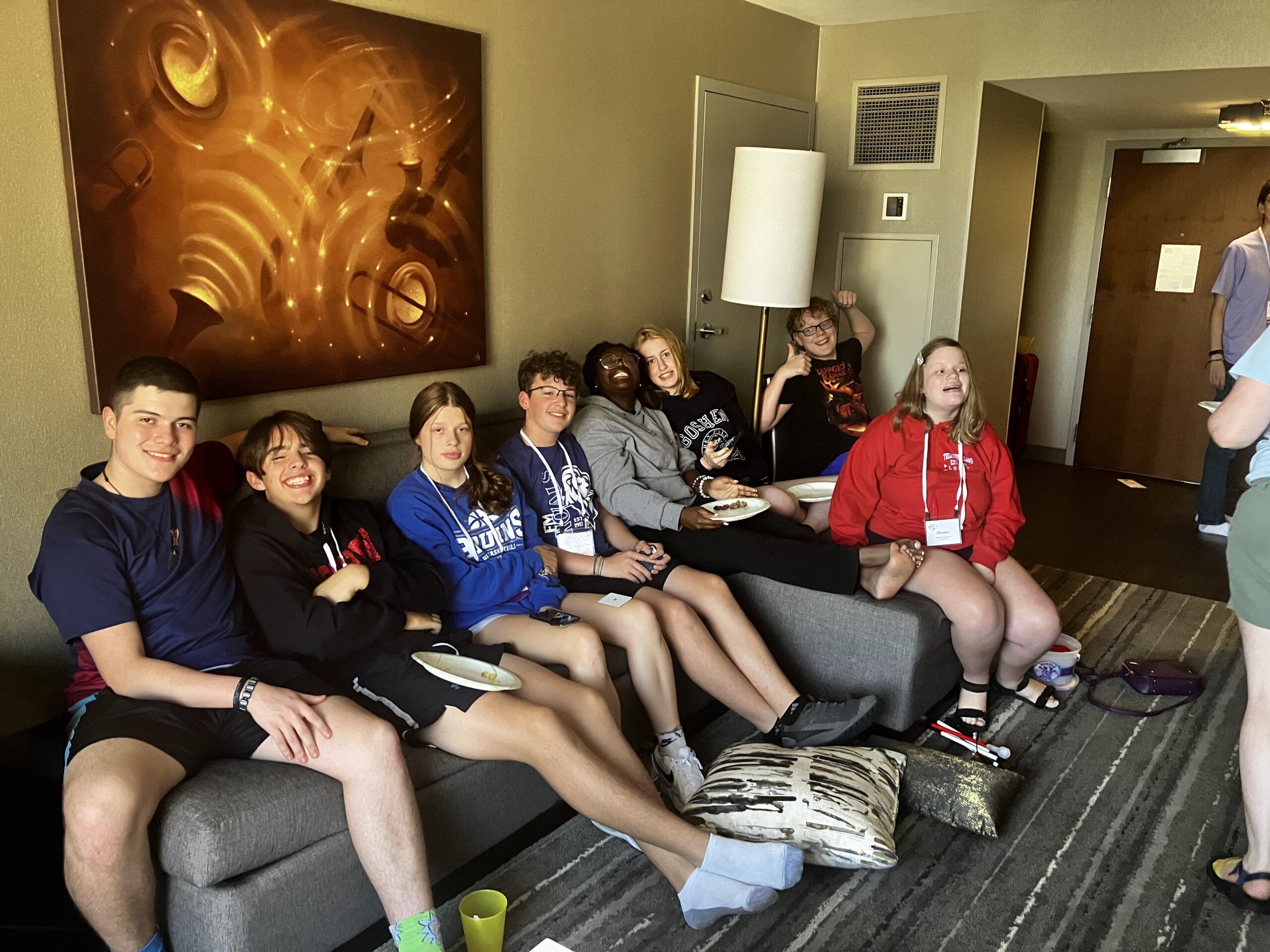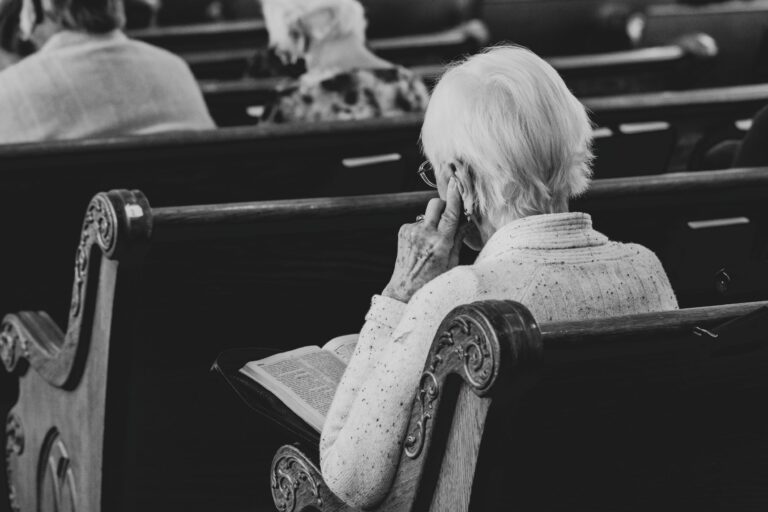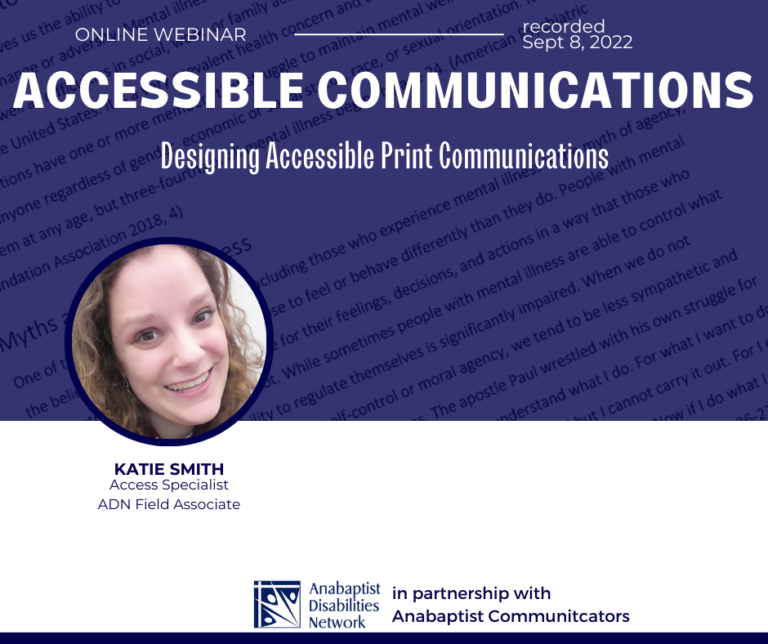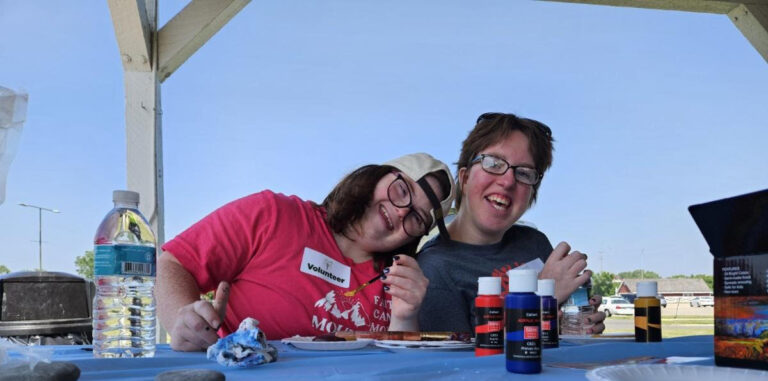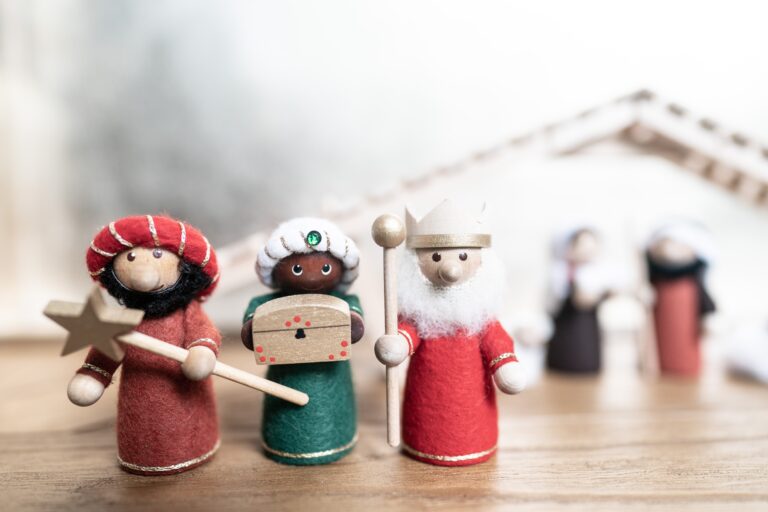On Connections: Optic Nerves and Church Community
An Interview with Eleanor Habecker
On a blustery day in early February, Eleanor Habecker and I met for hot drinks at a coffee shop. Eleanor describes her visual disability as a bad phone connection: “It’s like my eyes and my brain are two phones, and my optic nerves are a bad connection.” A delightful conversation of mutual learning and reflecting, our hour together covered a wide range of topics, including—but not limited to—the way her disability intersects with her faith and involvement in the church community.
What do church and faith mean to you?
Faith means believing in God, but also sorting out what is true from what we think is true. It means different things in different situations. Faith could mean that God is with us here at the coffee shop or at church. It means following, going to church, and believing what we’re taught at church.
Would you say faith is something that is personal or communal?
Maybe some of both. We can have faith as a community. We’re discussing faith together, but some aspects are personal and might not be shared because they’re either too hard to explain or they’re just private.
Do you think being blind has influenced your faith or your relationship with God?
I mean, maybe, but I’ve never seen, so I don’t know. People sometimes ask me how being blind is different than being able to see. I don’t think I’m the right person to ask, because I’ve never been able to see, so I don’t know how to compare.
It’s kind of a silly question for me to ask, isn’t it? You could ask the same question of me. How does my ability to see affect my relationship with God and my faith? I don’t know how to respond to that.
It’s not like my faith and my relationship with God are specifically tied to my vision.
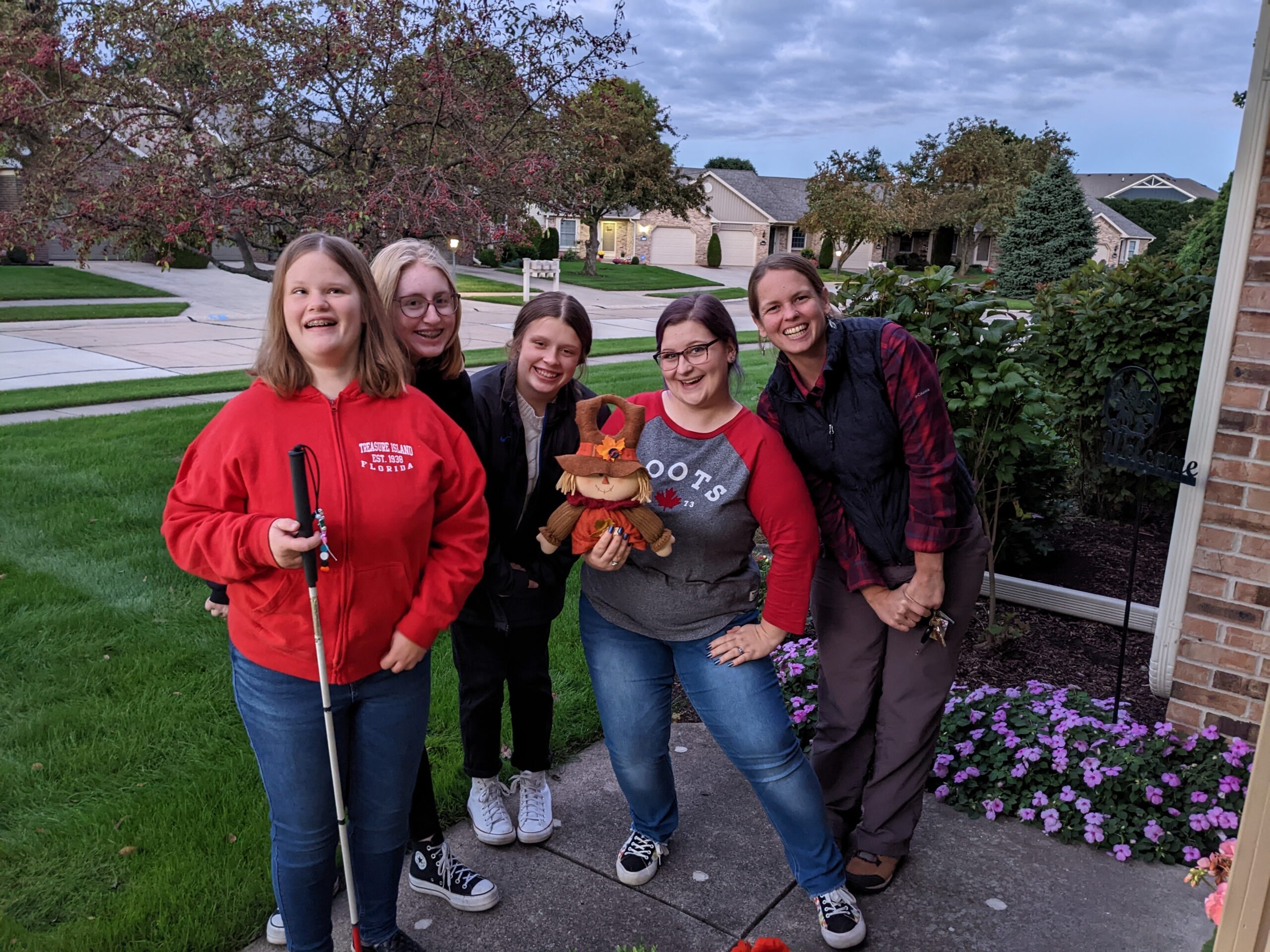
Is the communal aspect of faith tied to your vision?
Sometimes. In our congregation, we use the ASL sign for “applause” to clap because some people have a high sensitivity to sound. I’ve attended different churches in my life, and no one ever clapped. When we started at Waterford, I just assumed that no one claps in church. I don’t really feel like I’m missing anything because that’s what I’ve grown up with.
Sometimes, especially when I’m with a large group of people, conversations jump around a lot and are hard to follow. Or people bring up a picture on their phone to talk about or point to something without actually naming it.
I think our church, in general, is really good. Sometimes my blindness is actually an advantage in something we’re doing. Once in youth group, we played a game where you had to reach into a bag and pull your prize out without seeing it. I knew a lot of the candy bar shapes in there because that’s how I recognize my candy. I was able to get the candy I wanted.
How has your church accommodated your disability to make it easier for you?
The church has done some things that have really meant a lot. When I first started going to Waterford Mennonite Church, I couldn’t really sing well in worship because I didn’t know the words. I’d either just hum along or my dad would whisper the words right before they happened. It was okay, but kinda hard to do. Someone in my church started typing out all the songs we would sing. At first, she saved it on a flash drive and put it in the family mailbox. We’d pick it up before church, and then I could hold my Braille Note and sing. Now that my Braille Note does email, she just emails me the document beforehand. I remember I was so excited I could finally sing along with the church on Sundays.
That doesn’t really help for hymn sings because people are just calling out songs. I think hymn sings are great for people who can do them well. But I don’t go to those since I can’t sing along. I think it’s fun, but just a bit tricky.
The other big thing the church did was give me a Bible on a flash drive.
When I was younger, my mom got me some braille children’s Bibles, but she was never able to get me a full translation because it would be 18 volumes and really huge. When I was going into sixth grade, my church got me a full translation of the Bible on a flash drive, so I have two file folders with just the Bible on it that I can use with my Braille Note. I mean, of course they’re not perfect, but they are better than any other Bible I’ve had.
Can you explain what a Braille Note is?
It’s a braille computer, with the display at the bottom instead of the top and a screen that can be lifted so that other people can see too.
Your Braille Note helps you access activities. Have there been times that you’ve been frustrated you need to use it to be included in what sighted people are doing?
I think it has more to do with my mood that day than whether it makes me feel included. It has to do with whether I’ve had a lot of adapting lately. A few weeks ago, I felt like I was on my Braille Note all the time: “I’m reading on my braille note. We’re going to play a game? I need to get my braille note so I can do this along with everyone.”
I don’t feel like that right now because I’ve been doing things that aren’t on my Braille Note for a little bit.
Parts of the Bible and Christian language refer to blindness (example: “I once was blind, but now I see,” or Jesus healing the blind man). What type of emotions does that evoke in you?
A few years ago, my pastor asked if I thought “I once was blind but now I see” is literal, or if I think it means that they just have really good accommodations. I don’t know.
On earth, I would not want to see forever. That would be too overwhelming. I think in heaven it could be great. It would be normal, being able to see in heaven, and it wouldn’t be as overwhelming as trying to get used to navigating the earth again.
When I was little, I remember hearing those lyrics in “Amazing Grace,” and thinking, “Hey, that would be like me!” and just feeling really excited about it. But I didn’t think if the sight would be physical or metaphorical because I was little and didn’t think about that stuff quite the same way.
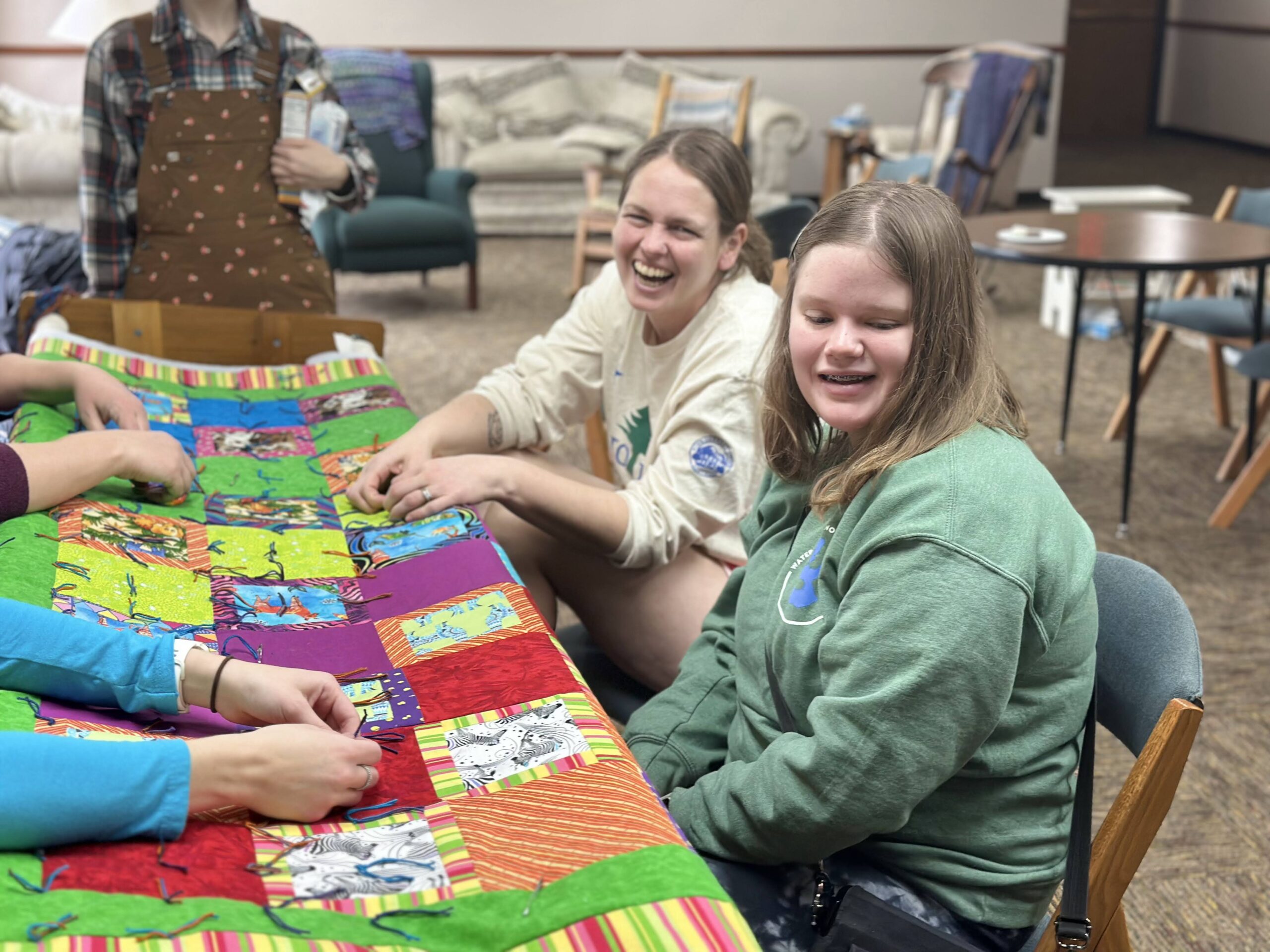
This leads into another topic: Healing. What does it mean to be healed when you have a disability?
When I was a baby, my parents took me to China for a procedure that could help me see a little bit more. It worked. I can see more than I could when I was less than a year old. I think I did want to be able to see like everyone else for a few years. I did want to be able to see until I realized how overwhelming it would be.
If Jesus offered to make me able to see, I would want to experience it, but I don’t think I’d want that to be forever. That would be too overwhelming. I think it’d be cool to see for an hour, just to be able to walk around my house and neighborhood. But I think I might want to wait until I get to heaven to fully see.
I haven’t thought about that before. It would be sensory overload for you to all of a sudden be able to see all of the details, colors, depth, and all of the things that you haven’t experienced before.
I think healing would mean being able to experience everything fully, maybe. I still experience things really well, but just to experience fully; I don’t think that means I’d have to be able to see. I don’t feel like I need healing, but I guess we all might need healing from something.
I wouldn’t have been able to do certain things if I wasn’t blind. For years, I went to a camp specifically for blind kids. It was so fun, but I wouldn’t have been able to do it if I could see, and I wouldn’t have met some of my friends that I hang out with because I would’ve been able to see.
Your blindness is not a deficit. It is just part of you.
It’s just kind of there. It’s like your clothes. You wear your clothes, and you notice your clothes, but you’re not constantly thinking, oh, I’m wearing clothes. Right?
Right. Every once in a while, you have to consider what clothes you’re wearing . . .
. . . but you’re not always thinking about it.
You shared a couple examples of things the church has done to help you access what’s happening. Do you have other stories when you felt that you belonged at church?
If I told every story that I belonged in, it would probably take forever!
We got the navigation signs in the church, which was cool. I feel like I belong when I teach Sunday school.
Another story: We were doing a Christmas pageant, and instead being scripted and practiced, everyone in the congregation got parts. I think I was a chicken, so I had this plastic chicken on a stick. When the chickens came out, all the chickens in the congregation were supposed to cluck. It was interactive with the kids and the adults.
It didn’t sound bad either; it still felt like everyone was part of it. And we all could move around, but it wasn’t like you had to move around in a specific way.
Youth trips play a big part in feeling like I belong, too. Going out and hanging out with people from youth group—the downtime and shared experiences or shared memories. During the last youth trip to Kentucky, a group of us went thrift shopping. It was awesome. I got some stuff from it that I really liked, and I was able to get advice from others on what looks good versus what feels good. Because texture and looks sadly don’t usually match.
Usually, clothes in stores all feel the same way, but this one had all kinds, and I was just going down the aisles picking things out. Then I tried them on, and I don’t think I’ve ever been so excited about clothes.
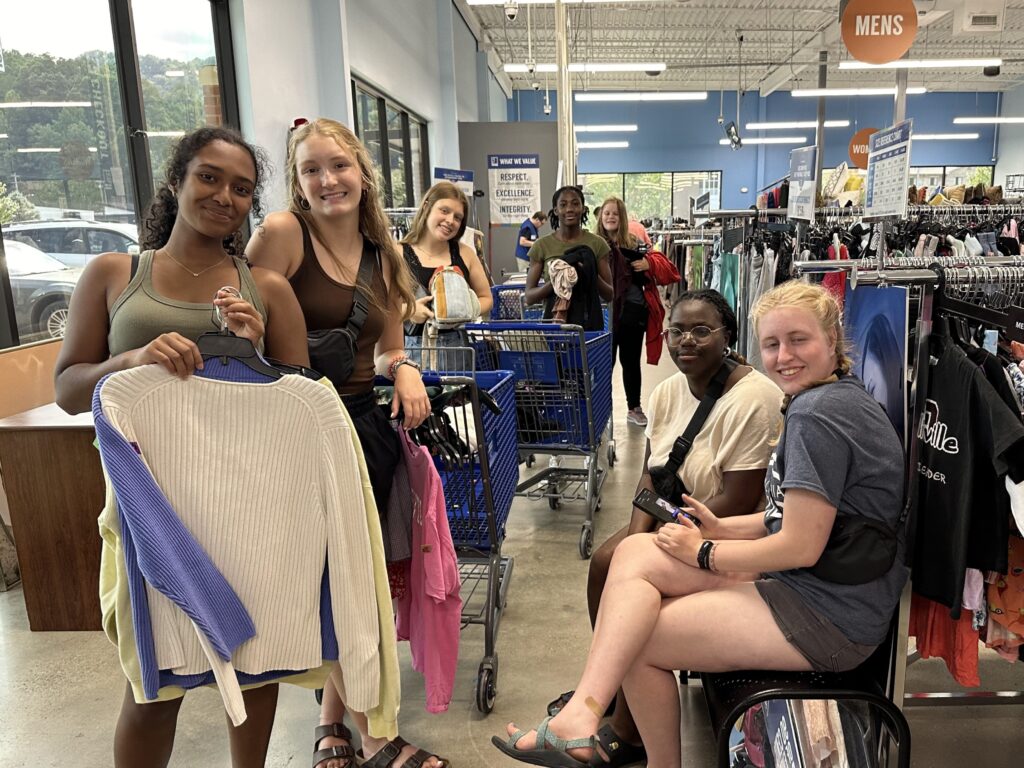
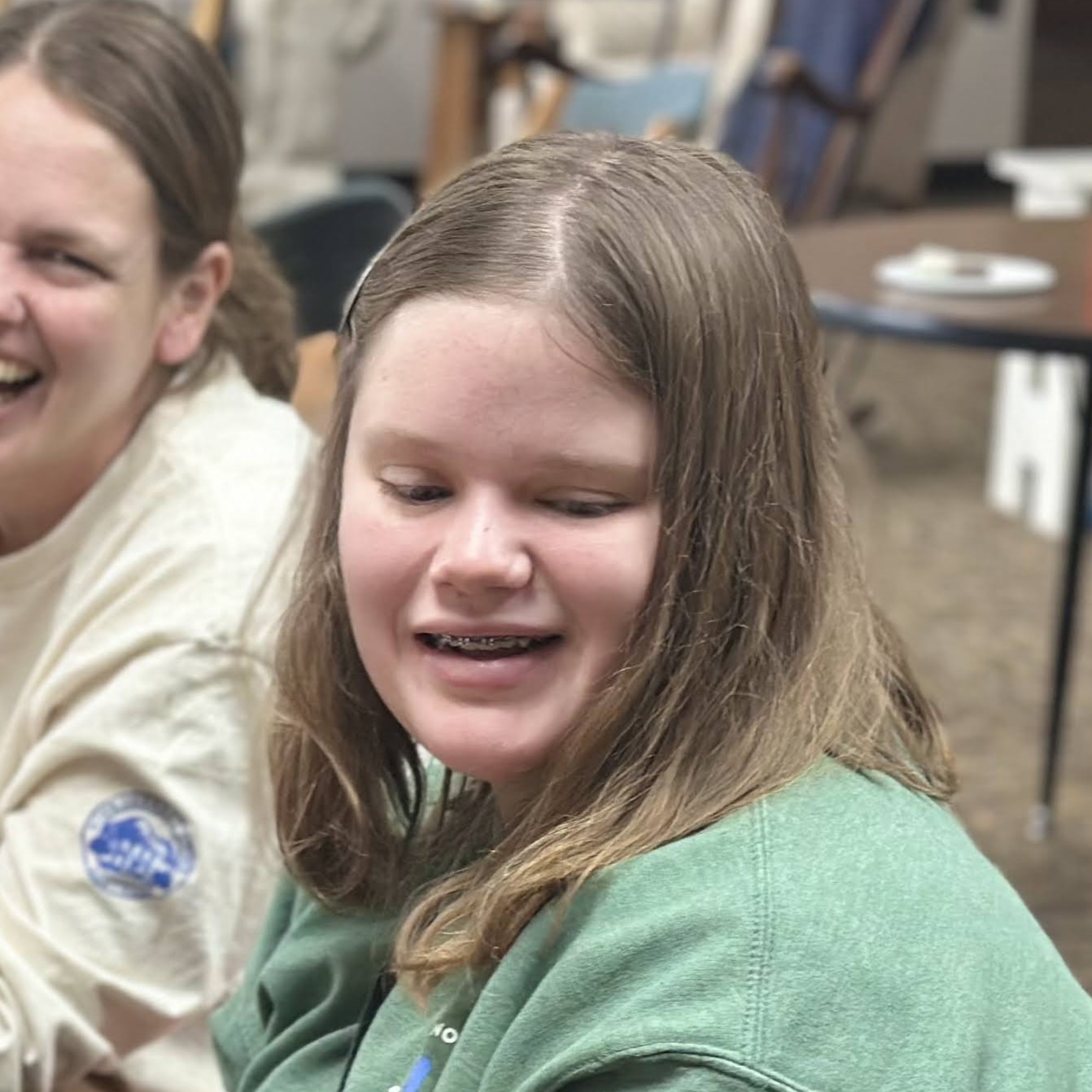
Eleanor Habecker is an insightful and clever high school senior who thrives on conversation and storytelling. She has a visual disability called optic nerve hypoplasia, and she can see some shapes, colors, and lighting changes. Eleanor enjoys reading, hanging out with her family, and spending time with children.


